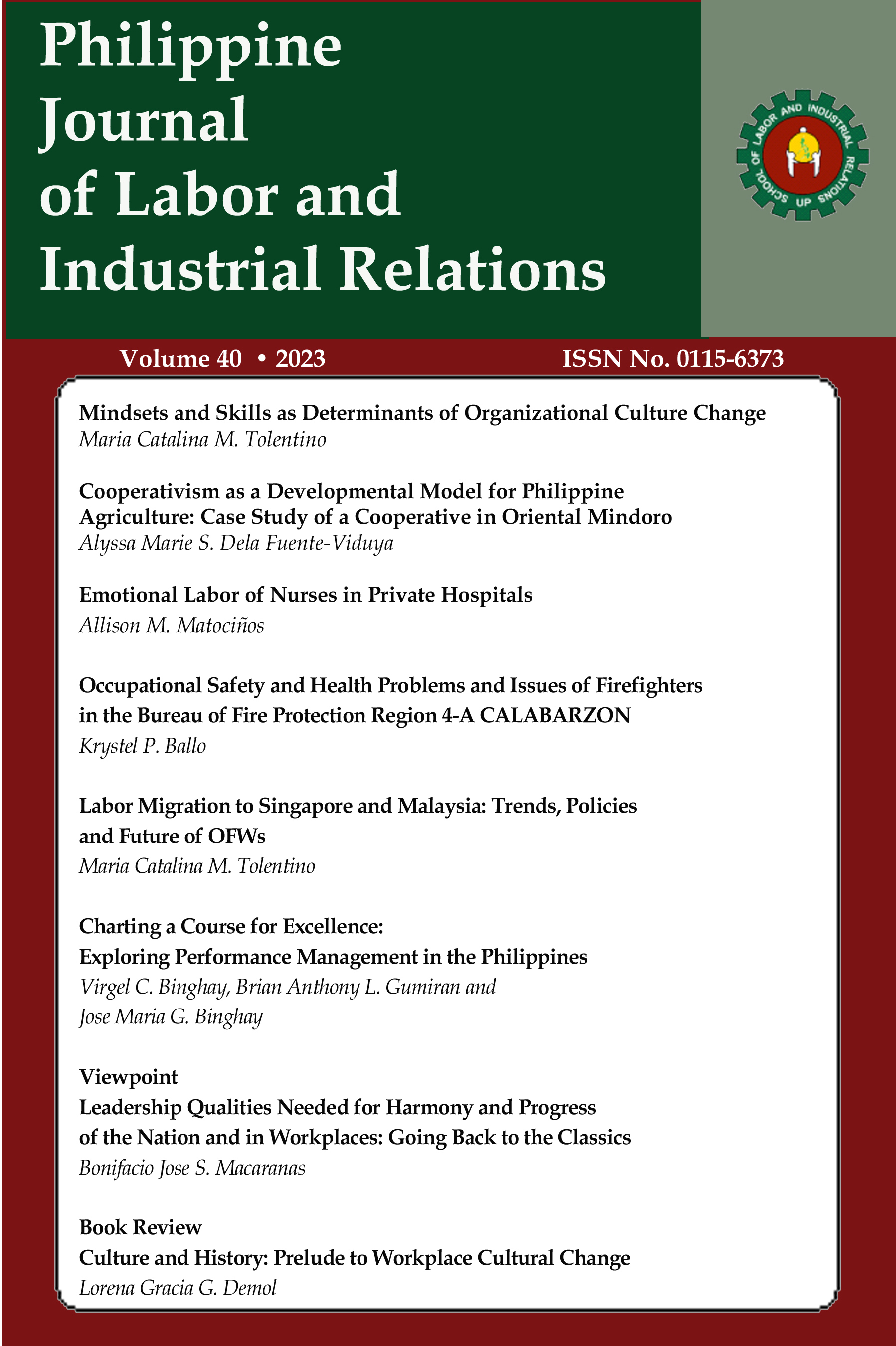Charting a Course for Excellence: Exploring Performance Management in the Philippines
Abstract
This study examined the state of performance management system (PMS) practices of Philippine organizations. Demographic variables of organizations were examined for their association with the existence of a written PMS. In addition, the association of PMS existence with specific PMS practices was assessed.
A researcher-designed survey was used to gather data from 343 human resource practitioners who represented their organizations. The instrument contains questions about demographic characteristics of their organizations as well as agreement questions to different facets of the four main PMS practices. Correlation tests were used to examine the association between the variables.
Among different demographic factors, only firm size was related to the formation of a written PMS with a weak relationship. A lack of regular updating and communication of job descriptions, failure to use performance metrics in determining actions to be taken regarding a staff’s performance, lack of competent and trained superiors in evaluating their staff, and general dissatisfaction with the rewards received in exchange for their performance are some of the determining factors in the absence of effective PMS. PMS phase pairs are highly correlated. The study has implications in the development of effective PMS in the country.


